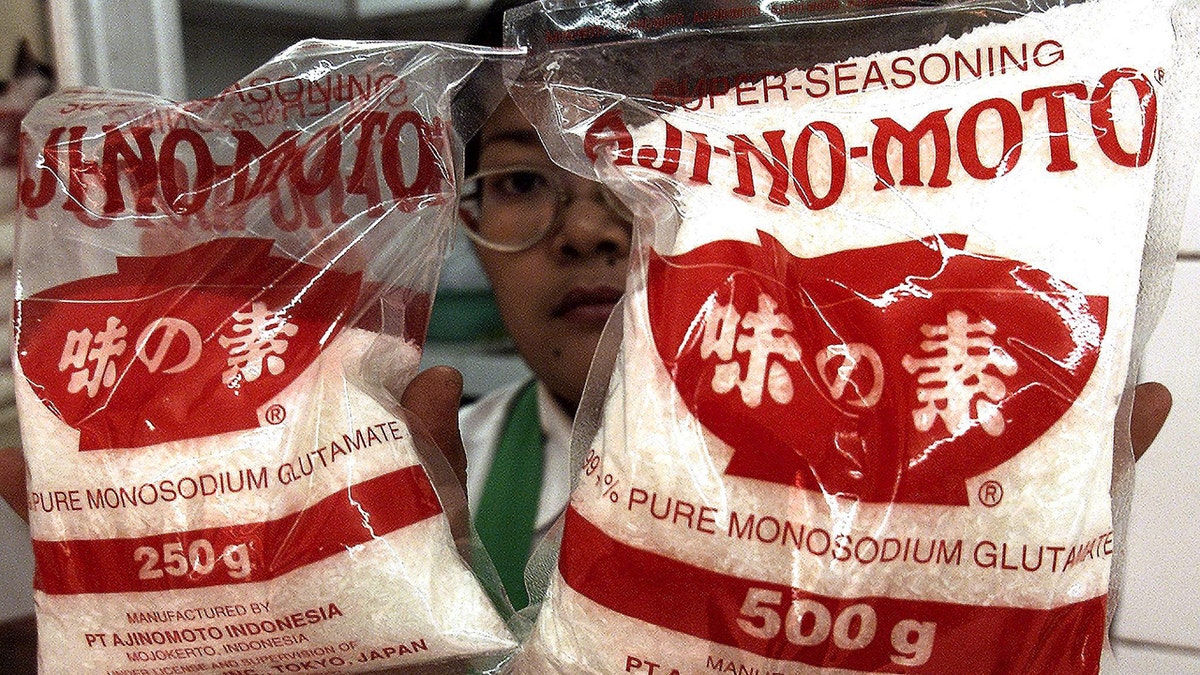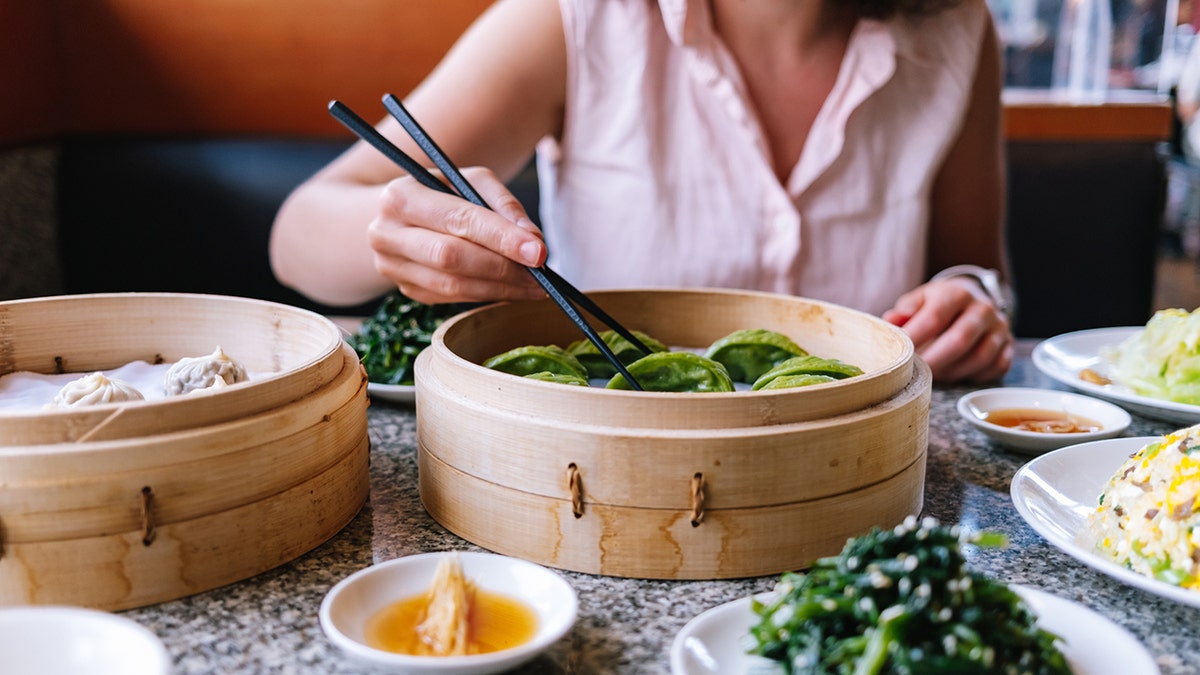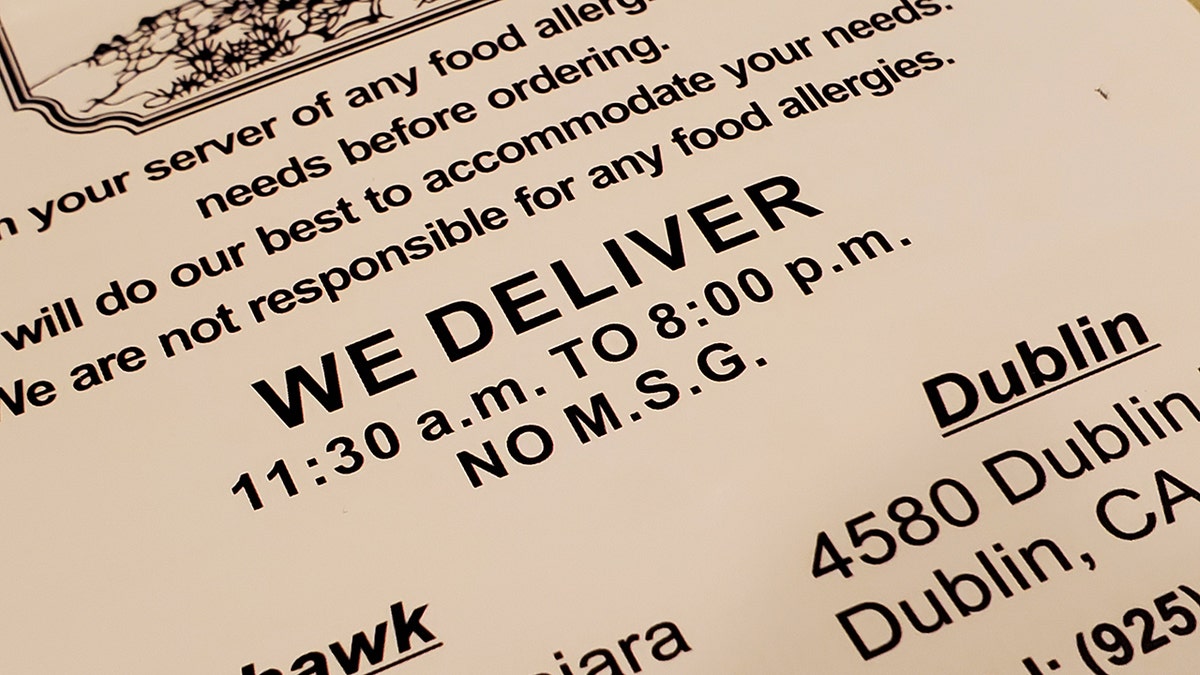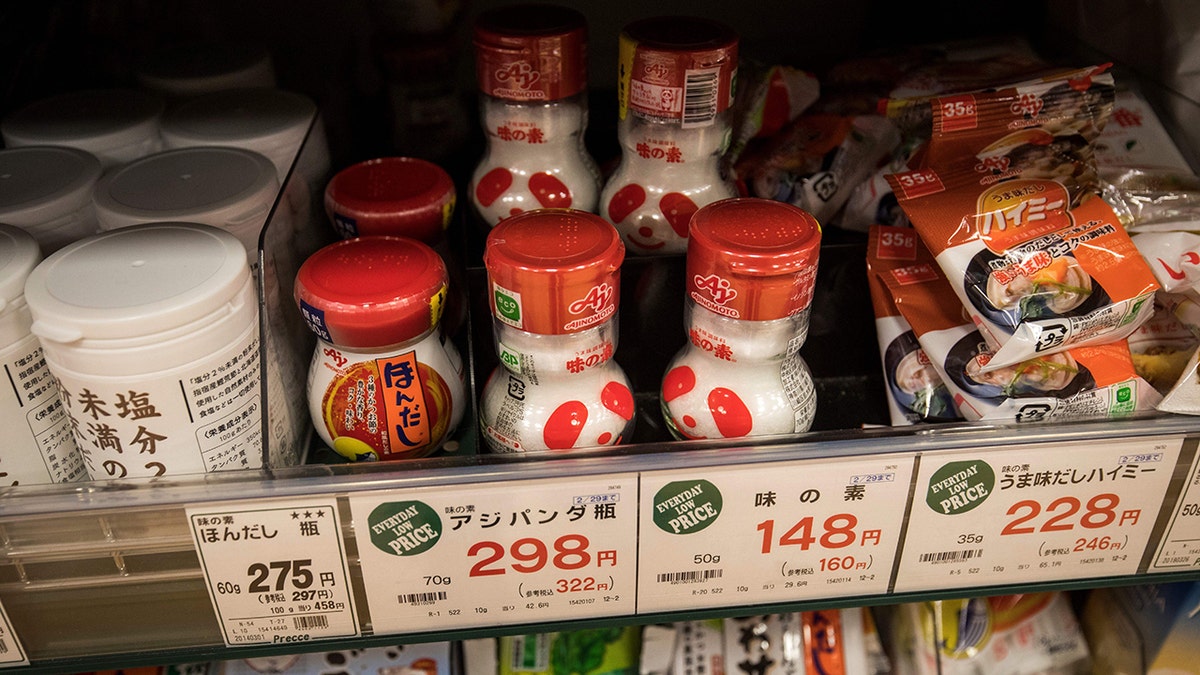The ABCs of MSG, or monosodium glutamate, from a Northwestern University professor
MSG, or monosodium glutamate, adds flavor to food — but is it good for us or not? Northwestern University professor Linda Van Horn, PhD, shares interesting context.
Monosodium glutamate, or MSG — a food additive that is often found in Asian cuisine — has had something of a negative reputation over the last 60 years. Some food experts insist that's unfair.
"To talk about MSG is to tell the history of umami, the fifth basic taste," Christopher Koetke, a Chicago-based corporate executive chef at Ajinomoto Health & Nutrition North America, Inc., told Fox News Digital.
Umami, said Koetke, "was first identified by Tokyo scientist Dr. Kikunae Ikeda in 1908 while enjoying a bowl of traditional Japanese seaweed broth called konbu dashi."
CHICORY AN ALL-NATURAL ALTERNATIVE TO CHEMICALLY DECAFFEINATED COFFEE, SAYS HOMESTEADER
This soup, said Koetke, had a distinct taste other than sweet, sour, bitter or salty — so he dubbed it "umami." In Japanese, umami means "essence of deliciousness," said Koetke.
"After days of studying various seaweeds, he found that the taste of umami could be attributed to glutamate, a naturally occurring amino acid, which is also present in the human body and in many foods," he said.

Monosodium glutamate, or MSG, was first identified over a century ago. (OKA BUDHI/AFP via Getty Images)
Ikeda then invented what would now be called MSG by combining one part glutamate with one part sodium, said Koetke.
"By 1909, MSG was patented and commercialized as AJI-NO-MOTO®, to become the world’s first umami seasoning," he said.
GENERAL TSO NEVER ATE 'HIS' OWN CHICKEN, PLUS 4 OTHER FUN FACTS ABOUT THE CHINESE AMERICAN CLASSIC
It is added to foods in recipes much like salt and other spices, and MSG is naturally found in many foods, including tomatoes and mushrooms.
But by the 1960s, opinions on MSG began to change, said Koetke.

"There have been tremendous breakthroughs over the last two decades related to understanding more clearly the relationship between food additives and their impact," said an expert. (iStock)
In April 1968, someone wrote a letter to the editor of The New England Journal of Medicine (NEJM), claiming to have "Chinese Restaurant Syndrome."
"The letter’s author described symptoms like weakness and flushing experienced after eating at a Chinese restaurant, speculating that these symptoms may have been due to any number of ingredients in the meal, including MSG," said Koetke.
The letter’s author described symptoms like weakness and flushing experienced after eating at a Chinese restaurant.
This letter sparked a fear of MSG, said Koetke, which, coupled with "anti-Asian xenophobia – at a high in the 1960s" – resulted in many Chinese restaurants advertising they had "no MSG" in their products to stay in business.
CLICK HERE TO SIGN UP FOR OUR LIFESTYLE NEWSLETTER
"Since then, extensive research has verified MSG’s safety, and sensitivities to the ingredient have never been consistently replicated in double-blind, placebo-controlled trials," he said.
Fox News Digital reached out to The New England Journal of Medicine for comment about "Chinese Restaurant Syndrome" and MSG.

Chinese restaurants began advertising that their food did not contain MSG after reports of "Chinese Restaurant Syndrome" were published in a medical journal. (Smith Collection/Gado/Getty Images)
The change in view on MSG is typical of "our world of nutrition research and trying to understand exactly how our diet influences our health," Linda Van Horn, PhD, RDN, a professor at Northwestern University's Feinberg School of Medicine. (See the video at the top of this article.)
WOMAN MAKES DOZENS OF MAC AND CHEESE RECIPES IN SEARCH OF 'ONE THAT SLAPS'
"There have been tremendous breakthroughs over the last two decades related to understanding more clearly the relationship between food additives and their impact, not only on how we feel, but some of the more objective data related to the microbiome," she told Fox News Digital in a Zoom interview.
"In other words, [there is] more objective information that allows us to better understand these relationships between diet nutrients and their impact on our health," she said.
MEET THE AMERICAN WHO POPULARIZED CHINESE FOOD IN THE US: IMMIGRANT CHEF JOYCE CHEN
MSG has considerably less sodium than table salt, noted Van Horn, something the food industry is "very interested in" amid a push to "reduce the amount of sodium in the diet and look for ways to enhance flavor," she said.

MSG has lower sodium than regular table salt, said one expert, which means it could be helpful for people looking to cut down on their salt intake. (Behrouz Mehri/AFP via Getty Images)
"We eat far too much sodium in our diet, which relates to the No. 1 burden of disease, which is hypertension," she said.
Van Horn stopped short of giving MSG a green light, saying that "it's really not clear at this point" if the additive is safe for humans in unlimited amounts.
CLICK HERE TO GET THE FOX NEWS APP
"There really isn't a definitive answer when it comes to, ‘Is it or is it not something that should be regulated, reduced and otherwise prevented in terms of our overall diet,'" she said.
"So as usual, I think we come away with the understanding that this is a research work in progress."
"Limit the intake of sodium in general."
The consumption of some MSG, she said, "probably isn't all that harmful."
"However, I would continue to remain" aware of how much MSG is being consumed, she said.
For more Lifestyle articles, visit www.foxnews.com/lifestyle
"The bottom line is: Enjoy Asian cuisine," said Van Horn.
"Limit the intake of sodium in general and be cautious in regard to individual use of MSG beyond some of the herbs and spices."

